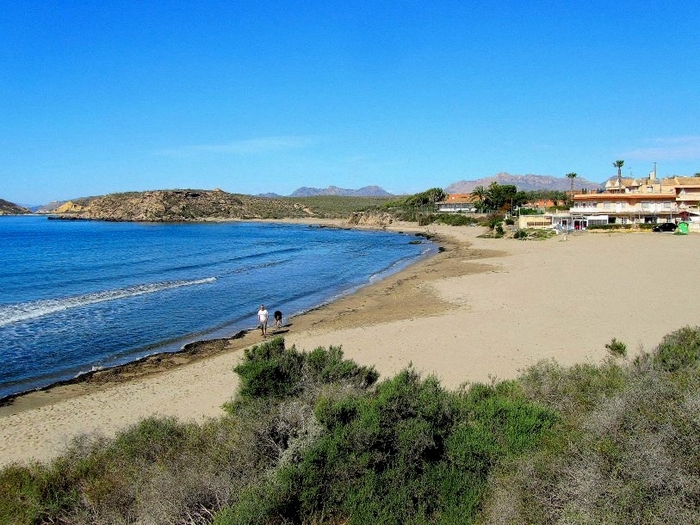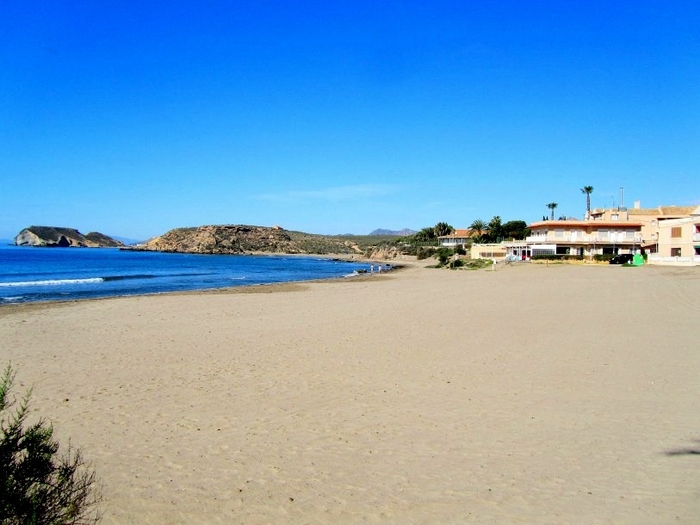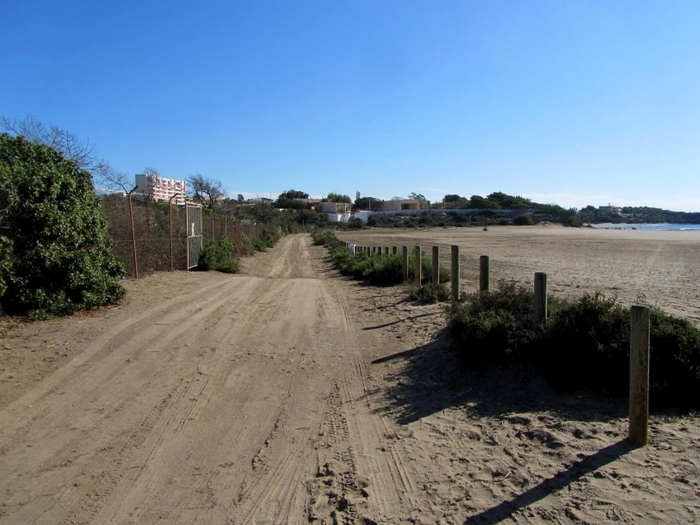- Region
- Vega baja
- Marina Alta
- Marina Baixa
- Alicante
- Baix Vinalopo
- Alto & Mitja Vinalopo
-
ALL TOWNS
- ALICANTE TOWNS
- Albatera
- Alfaz Del Pi
- Alicante City
- Alcoy
- Almoradi
- Benitatxell
- Bigastro
- Benferri
- Benidorm
- Calosa de Segura
- Calpe
- Catral
- Costa Blanca
- Cox
- Daya Vieja
- Denia
- Elche
- Elda
- Granja de Rocamora
- Guardamar del Segura
- Jacarilla
- Los Montesinos
- Orihuela
- Pedreguer
- Pilar de Horadada
- Playa Flamenca
- Quesada
- Rafal
- Redovan
- Rojales
- San Isidro
- Torrevieja
- Comunidad Valenciana
Águilas beaches: Playa Calarreona
A sandy beach with both Q for Quality and Blue Flag awards
The beach of Calarreona is one of a group of four lying in the Cuatro Calas area, which is an officially protected part of the landscape in Águilas and the neighbouring municipality of Pulpí, and is the fourth beach in the run of 36 beaches stretching for 28 kilometres along the Águilas coastline, but it is very different from its companions Cala Cerrada (or Cala de los Cocedores), Playa de la Carolina and Playa Higuerica.

The other three are all rather on the wild side, with no built-up development alongside and facilities limited to the minimum, but Calarreona has been awarded the coveted Blue Flag and the Q for Quality flag for many years due to the range of services and facilities provided. These include access, toilets and parking for the disabled (as well as assisted bathing for the disabled duing summer months) a beachside restaurant, a beach bar, wooden slatted walkways, toilets, foot showers, special lanes for boats and jetskis, daily cleaning and litter collection in summer, a lifeguard service also in summer and drinking water. Unusually, dogs are also allowed onto this beach, although they must be kept on a leash.

The beach is a long one, measuring 490 metres long, and 45 metres wide and is almost divided into two by a small headland in the middle on which there is a large youth hostel: the eastern end is sometimes known as La Cabaña, while the western half is often called Playa de Las Tortugas. This western half has slightly more of the wild, unspoilt feel to it which characterizes the rest of the Cuatro Calas, while at the eastern end a beach-front eating establishment and the proximity of residential developments changes the atmosphere noticeably. The wide expanse of golden sand in the west has no buildings behind it, and there is plenty of parking space at the end of a track which leads to the beach from the RM-333 road which leads out of Águilas towards the south-west.
At the eastern end of the beach Calarreona has a far more urban feel to it, with the easiest parking outside summer on the residential streets which lead down from the main road. This is still very different from the built-up beaches of the centre of Aguilas, but at the same time bears little relation to the undeveloped scene a little further west.

With all the facilities in place here this is a convenient beach to visit, and in summer it’s popular among those who are keen to avoid the congestion in the centre of Águilas while at the same time not having to prepare a packed lunch and a coolbox. The number of people using it falls off-season, of course, but the popularity of the area with walkers – there’s no promenade, but Calarreona is on the coastal path - and the fact that the youth hostel is in the middle of the beach mean that it is very rarely deserted.
Click for further information regarding the beaches of Águilas.
More information about Águilas including beaches, what to see, what's on and tourist information can be found on ÁGUILAS TODAY
staff.inc.ali


